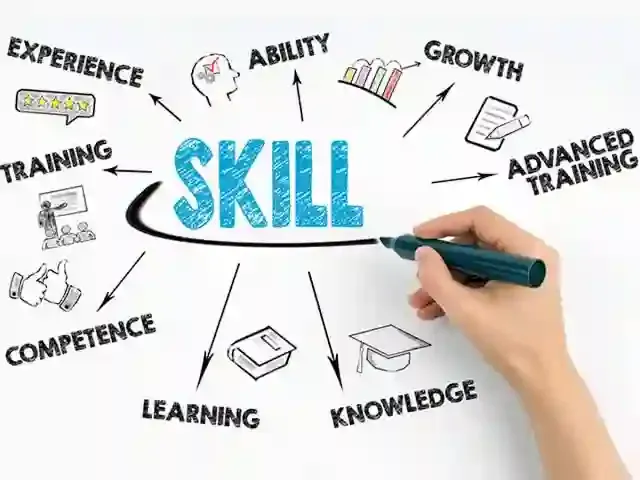IN BRIEF:
- The concepts of purposeful practice and deliberate practice provide a roadmap for skill development in various fields.
- By embracing the principles of clear goal-setting, seeking feedback, pushing boundaries, monitoring progress, and maintaining motivation, individuals can continuously improve and unlock their true potential.
- Deliberate practice goes beyond passive repetition and requires active engagement, focusing on skill-specific training and the development of effective mental representations.
- Whether guided by a teacher or navigating self-improvement, implementing deliberate practice techniques empowers individuals to achieve mastery and excel in their chosen pursuits.
Introduction:
In this article adapted from Anders Ericsson's book, Peak, we will explore the concepts of purposeful practice and deliberate practice, highlighting their significance in skill development across various domains.
Contrary to the notion of natural talent or prodigies, we will emphasize the idea that anyone can improve their abilities through the right kind of practice, regardless of age or background.
By understanding and implementing the principles of purposeful and deliberate practice, individuals can unlock their full potential and continuously enhance their skills.
Purposeful Practice: The Key to Improvement
Naive Practice vs. Purposeful Practice:
Naive practice refers to the common, ineffective approach of simply going through the motions without specific goals or feedback.
On the other hand, purposeful practice involves setting well-defined objectives, seeking feedback, pushing beyond comfort zones, monitoring progress, and maintaining motivation.
By adopting purposeful practice, individuals can optimize their learning and progress rapidly.
Components of Purposeful Practice:
Setting Clear Goals:
Breaking down long-term objectives into manageable steps and creating a plan of action.
Feedback:
Actively seeking feedback from oneself or others to identify mistakes and areas for improvement.
Stepping out of the Comfort Zone:
Embracing discomfort and challenging oneself to surpass existing limitations.
Progress Monitoring:
Regularly evaluating one's progress and making necessary adjustments to the practice approach.
Sustaining Motivation:
Finding intrinsic and extrinsic sources of motivation to fuel continuous improvement.
Additional Guidelines for Purposeful Practice:
Full Attention:
Investing complete focus and concentration in the practice session, avoiding mindless repetition.
Feedback as the Catalyst:
Recognizing the crucial role of feedback in identifying areas of weakness and refining performance.
Embracing Variation:
Introducing changes in practice routines, such as altering speed, exploring new techniques, or tackling unfamiliar challenges.
Overcoming the "Good Enough" Mentality:
Acknowledging the tendency to plateau once a satisfactory level is reached and actively seeking new ways to improve.
Mental Representations: Building Expertise
The Role of Mental Representations:
Expert performers excel due to their highly specialized mental representations developed through years of deliberate practice.
These representations enhance memory, pattern recognition, problem-solving, and other advanced abilities specific to their domain. Creating effective mental representations is a primary objective of deliberate practice.
The Gold Standard: Deliberate Practice
Principles of Deliberate Practice:
Well-Developed Fields:
Deliberate practice requires clearly superior performers in a specific field, serving as benchmarks for skill levels.
Knowledgeable Teachers:
Expert teachers or coaches are instrumental in providing practice activities tailored to individual improvement.
Near Maximal Effort:
Deliberate practice involves consistently challenging oneself beyond the comfort zone, emphasizing improvement rather than comfort or enjoyment.
Specific Goals:
Deliberate practice focuses on well-defined objectives, targeting specific skills rather than overall improvement.
Full Attention and Conscious Action:
Engaging in deliberate practice requires maintaining focus and avoiding autopilot mode.
Feedback and Iterative Adjustments:
Regular feedback and incremental improvements form the foundation of deliberate practice.
Skill-Specific Training:
Concentrating on building and refining specific skills by isolating and enhancing key aspects.
Applying Deliberate Practice Beyond Traditional Training:
Deliberate Practice in Non-Deliberate Training Fields:
In fields lacking deliberate training options, individuals can still improve by studying and emulating expert performers, identifying their distinctive approaches, and developing tailored training techniques.
The notion of the "10,000-hour rule" is relative to the competition within a field, and mastery can be achieved more efficiently with deliberate practice techniques.
Deliberate Practice in Professional Environments:
Challenging the two common myths of performance improvement—genetic limitations and passive repetition—deliberate practice asserts that focused effort, guided by effective training and continuous refinement, leads to skill enhancement.
Emphasizing skill development over mere knowledge acquisition can revolutionize education and professional growth.
Deliberate Practice in Daily Life: A Framework for Improvement
Finding a Suitable Teacher:
Private instruction with a skilled teacher allows personalized feedback and guidance, enabling targeted improvement. However, it's essential to recognize when to transition from one teacher to another to maximize growth potential.
Engagement and Deep Work:
True improvement requires engaged focus rather than passive or relaxed involvement. Mind-wandering and mindless repetition hinder progress. Deep work, involving deliberate concentration and intense mental effort, fosters optimal skill development.
When a Teacher Is Unavailable:
Adopting Benjamin Franklin's method for writing improvement, individuals can study respected practitioners, analyze their work, identify areas for enhancement, and create exercises to target weaknesses.
By actively seeking repetition and experimenting with different methods, one can uncover effective ways to progress.
Overcoming Plateaus:
To overcome performance plateaus, it is essential to identify specific weaknesses and design targeted practice techniques to address them.
By challenging oneself with new approaches and focusing on areas that require improvement, individuals can break through barriers and continue advancing.
Maintaining Motivation:
Sustaining motivation throughout the learning journey is crucial. Limiting practice sessions to one hour and taking breaks in between can enhance focus and reduce demotivation.
Additionally, forming groups with like-minded individuals pursuing similar goals can foster mutual support and motivation.

